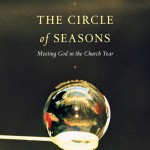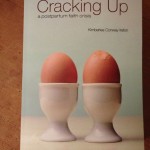Hello friends. I know I’ve been in absentia for a few weeks. The Psalms of Ascent ended, and so did the school year, and now we’re traveling. By the end of the month, I plan to have a small story-gift for those of you who subscribe via email. In the meantime, I’ll be lying fairly low. In fact I’ll be lying low most of the summer, taking some space to breathe and write and think and be. If you feel so inclined, I would love any prayers you offer on my behalf in the next few months: I have some marching orders that intimidate me! For today, here’s a little offering, a soupçon of how slowly I hope my summer will unfold.

I didn’t used to like poetry. I wrote abominable verse as a teenager (what literary teenage girl doesn’t?), but poetry was something we studied in school, something teachers asked you hard questions about, questions like, “What is the symbolism of the bird in this poem?”, questions you didn’t dare to answer because you might be wrong. How were you supposed to know what the bird symbolized? You were only 15. Weren’t birds, well, birds? So you kept your head down and tried not to make eye contact and hoped that the teacher wouldn’t notice you and call on you and make you expose your ignorance. Sometimes he did and sometimes he didn’t.
As far as the poetry was concerned, it didn’t much matter whether he called on you or not. What you learned from these sessions was that poetry was hard to read. It was obscure. It was opaque. It made you feel stupid, and who wants to feel stupid? You read the school poems when you had to, and at home you read historical novels and if some of them read like poetry, you never noticed.
Or at least that’s what I did. I thought poetry was inhospitable. It didn’t seem to want me. But that’s mostly because I didn’t understand what poetry was.
A poem, even the shortest, is not a cocktail party where you wander about with your plate in one hand and a drink in the other, grazing. Nor is it a meal-in-a-blender that you can chug as you run out the door. Nor is it a hydrolyzed, homogenized, high-fructosized package of unpronouncibility that leaves you scratching your head about what exactly those ingredients are and how they add up to food (bird symbolism, anyone?). If that’s how you approach a poem, it will turn its back on you.
Instead, a poem is a nine-course meal, and it requires that you sit your hind end in a chair and stay there for awhile….
The rest of the post is over at Grace Table. Pull up a chair and join me?
Photo by Katy Wrathall, Creative Commons via Flickr.

